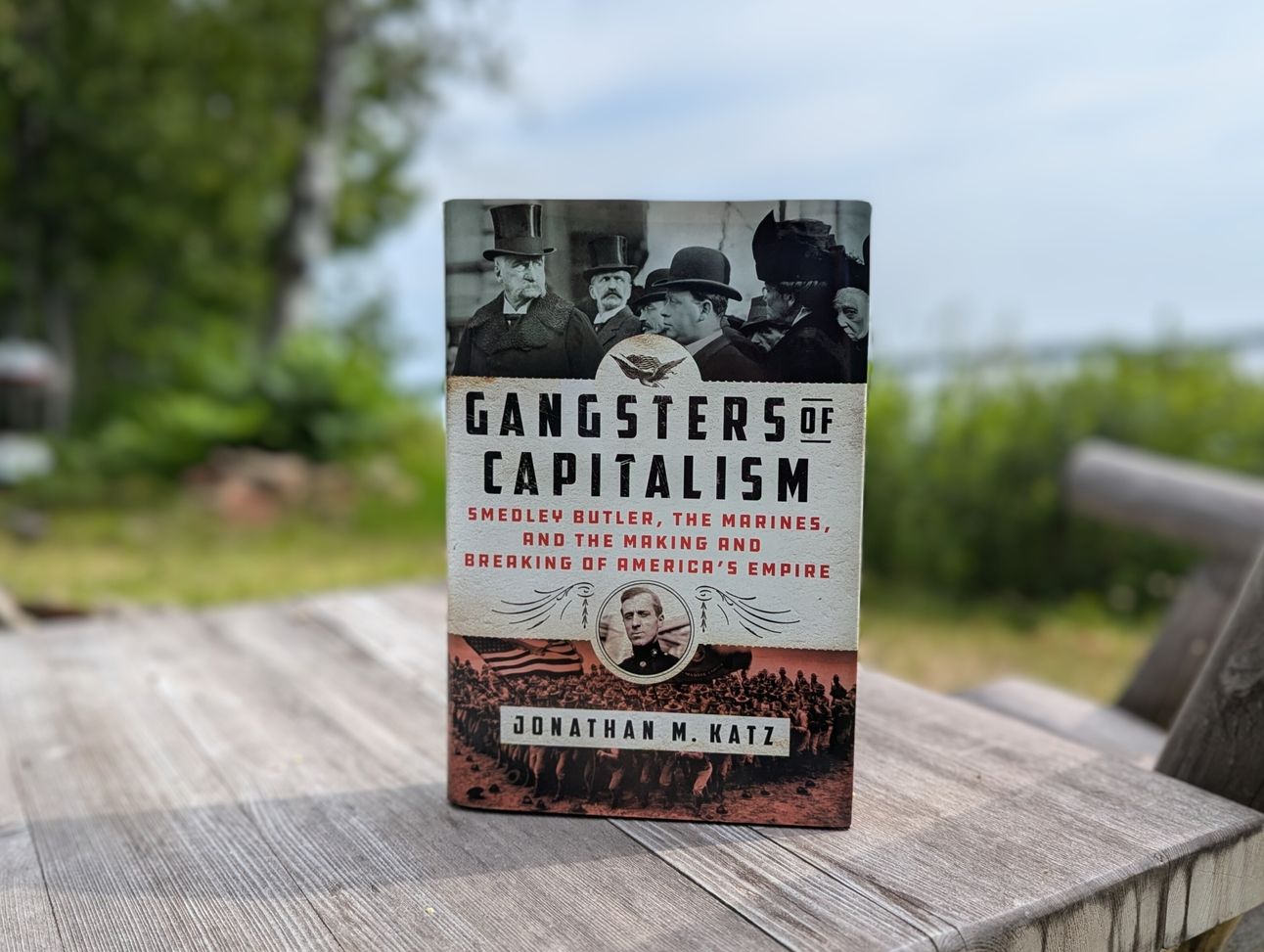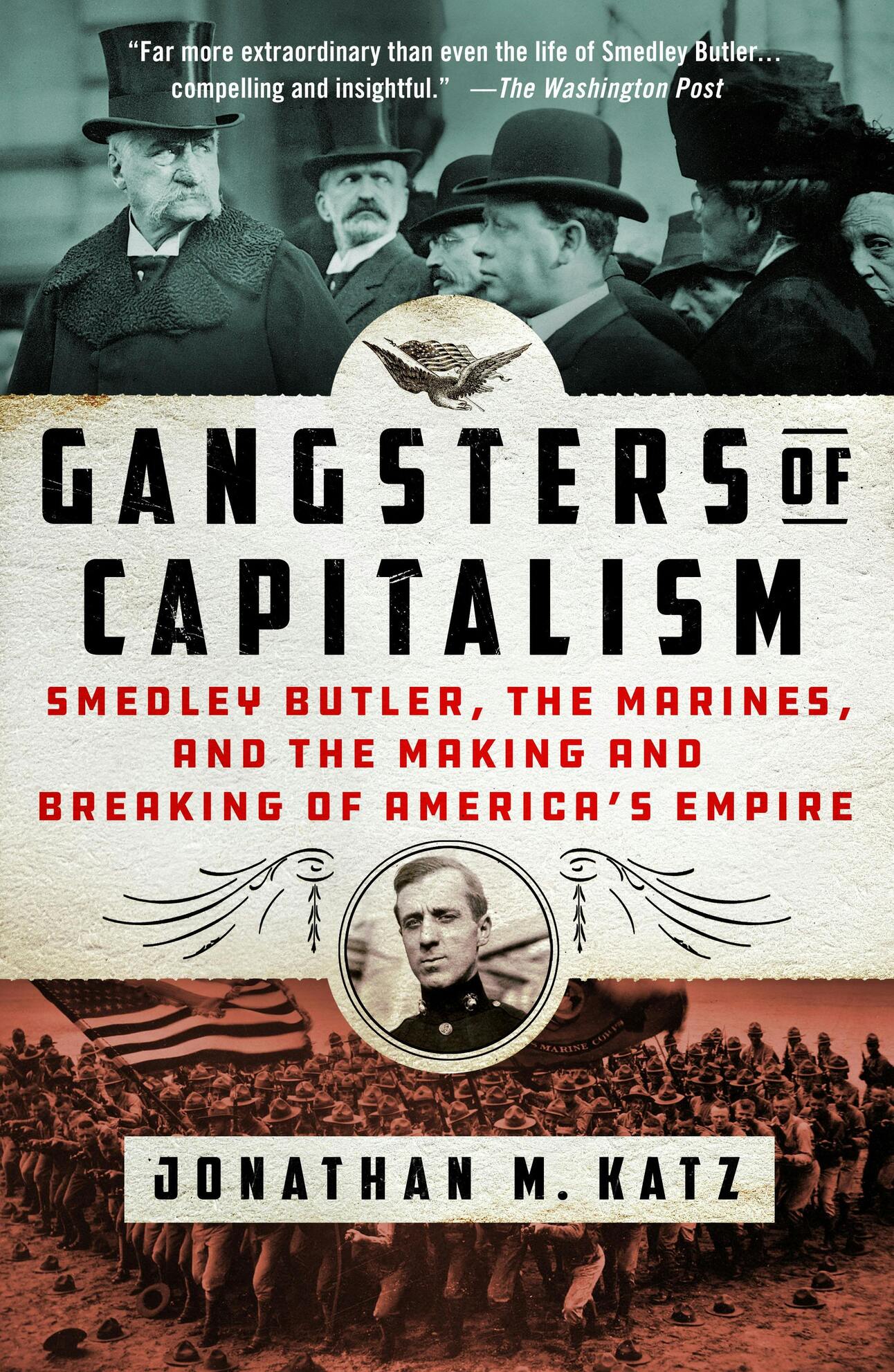A word or two before the book review:
Empire building and colonization were peaking as the nineteenth century was ending and the twentieth beginning, though it wouldn’t have been quite apparent to people then.
The British had the largest empire at the time, and in fact it was the largest empire the world has ever seen. France had colonies overseas and so did Spain, though both had lost colonies to independence. The Austria-Hungary Empire under the Hapsburgs ruled much of eastern Europe. And while the Dutch had pretty much exited the Empire game by this point, two new nations were entering - Germany and the United States.
I don’t know how many people today understand the US’s empire building stage. Is it taught in school? I don’t remember learning much about it when I was a kid, but that was ages ago.
From Cuba to Haiti, the Dominican Republic, Panama, and the “Banana Republics” and on to the Philippines and China the United States found reasons to intercede, and in many cases take over, countries around the world. It continued to do so from the turn of the century all the way up to World War II. And it has continued to do so, though no longer for empire, up to the present day.
In some ways the expansion of the US empire was a continuation of what was then called Manifest Destiny. Manifest Destiny was the US notion that it had a destiny and a right to expand its territory across the North American continent all the way to the Pacific Ocean. To do so it waged numerous “small wars” against Native American peoples. Then, in July of 1898, Hawai’i became a US territory, expanding our nation beyond the limits of the continent.
The internationally recognized sovereign monarchy of Hawai’i was overthrown in 1893 by American business interests, and it had been ruled by those interests as an independent republic before being annexed by the US - following the model set by Texas after the war with Mexico. The eras of Manifest Destiny and American Empire are clearly intertwined.
While we don’t talk much about America’s empire building these days, some of the lands we claimed then are still part of our nation. An excellent book about the current state of those territories is The Not-Quite States of America, which I read a few years back. You can find my short review of that book here.
The action in today’s book picks up as the Spanish American War has begun, which, according to the author, provided cover for President McKinley to announce the annexation of Hawai’i. On to the book review…
Gangsters of Capitalism is both history and biography. It tells the story of American Empire through the career of Smedley Butler, a long serving and highly decorated Marine, who ended his time of service as a General, and one of only two Marines ever to have received Medals of Honor for two separate acts. Author Jonathan Katz draws on many of Butler's own letters that allow him to really get inside Butler’s head as he follows his actions throughout his lifetime.
Butler, from a well-to-do family in Philadelphia, justly earned his nickname - the “Fighting Quaker”. But he ended his career as a Marine questioning many of the actions he had taken. In 1935, as the threat of coming war loomed, Butler published a booklet called War is a Racket. It grew out of a series of speeches he gave after retiring from the Marines. In those speeches he described himself as a “high-class muscle man for Big Business” and a “racketeer for capitalism”. The book boiled the speeches down and was shared to give the public his perspective on why wars had been fought by the US, and who gained from it. Not the soldiers, he tells us, and certainly not the civilians on whose land they had fought.
Butler served in Cuba, the Philippines, China, Panama, Nicaragua, Haiti, and, during World War I, in France. He entered service as a young recruit (who managed to hide the fact that he was two years below the recruitment age). As the Spanish-American War was starting he had been inspired to fight on behalf of innocent Cubans, encouraged by newspaper stories of Spanish atrocities perpetrated on the people there.
The Spanish colonial governor Don Veleriano Weyler y Nicolau was notorious for one innovation in particular. He ordered that thousands of Cubans be rounded up and placed in "garrison towns” behind barbed wire where they were guarded by soldiers with machine guns. The Spanish term for these garrisons was reconcentracion and the US newspapers translated that as the new term “concentration camps”.
But rather than a career of freeing oppressed peoples as he had first imagined, Butler found himself time and again working against the interests of local peoples and for American business interests in country after country. One of his last campaigns was in China as the civil war between the Nationalists and the Communists raged. There, Butler was successful in maneuvering to protect China, at least for a time, from Japanese invasion. But the bulk of his time over two years in China was spent commanding troops as they guarded the assets of Standard Oil.
One of the lowest points of his career, that he did not dwell on until after he retired, came while serving in Haiti. Butler was heading the US occupation of the country at that time. In 1917, The US State Department had written a constitution for the country which went before the Haitian National Assembly for ratification. But a key provision of that constitution was unacceptable to the Assembly. It would allow American ownership of land within Haiti.
For Haitians, a country founded by enslaved people in the only successful slave rebellion in the Americas, control over the land their forebears had toiled was a sign of autonomy and freedom.
When it appeared that the Assembly would not approve the clause allowing American ownership, the State Department appealed to Butler to intercede. Butler entered the legislative chamber with armed troops, sealed the doors, and, at gunpoint, dissolved the legislature.
With no legislature the new constitution was put up for a vote by Haitians. Less than 5% of Haitians voted, many intimidated by the armed men overseeing the polling places. The constitution was approved.
It was a series of moves Butler came to regret. In his speeches after retiring, when he sometimes acknowledged these actions, Butler called it out as a signature act of “gangsterism”. He had not worked to benefit the Haitian people. He had not worked to make America safer. Rather, he had helped make Haiti “a decent place for the National City Bank boys to collect revenues in.”
I’ll sum up by quoting another reviewer. Daniel Larison wrote the following in his review for Responsible Statecraft (see link below): “If [Butler’s] experience teaches us anything, it is that wars for empire cause tremendous harm to both the people being dominated and to the people sent to fight in those wars.” And so it was for Butler, who spoke out against war vociferously after his time in service, and whose voice was mostly ignored.
One more thing I have to mention - the book tells a bit about the “Business Plot”, an attempt by unnamed business leaders to oust FDR from the presidency and install a dictator along the lines of Mussolini, which Butler uncovered. If anyone is aware of a book that goes into more detail about that I’d love to read it. Leave a comment online if you have a suggestion.
RATING: Four Stars ⭐⭐⭐⭐
RATING COMMENTS: A fascinating review of four decades of America’s empire building as seen through the career of Smedley Butler, who ended his service as a highly decorated General in the Marines. The pace is a bit uneven, but Katz’s treatment of his subject is wide ranging, and he looks with eyes wide open at America’s role in colonizing and conflict.
WHERE I GOT MY COPY: I bought a hardcover copy of the book through a local bookseller here in Michigan’s Keweenaw.
See What Others Think
Responsible Statecraft: Why Smedley Butler left the imperialist front despising 'Gangsters of Capitalism'
California Review of Books: Review of ‘Gangsters of Capitalism’
Title: Gangsters of Capitalism: Smedley Butler, the Marines, and the Making and Breaking of America’s Empire
Author: Jonathan Katz
Publisher: St. Martin’s Press - An imprint of The St. Martin’s Publishing Group, a division of MacMillan Publishers
Publish Date: January 18, 2022
ISBN-13: 9781250135582
Publisher’s List Price: $32.00 (Hardcover. Price as of July 17 2024.)




